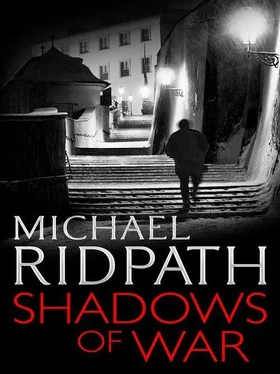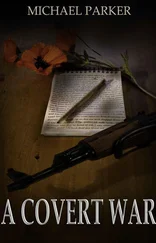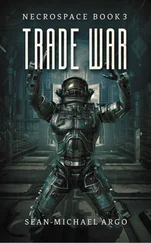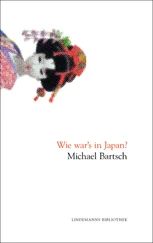But Theo had always been hard to read. There were several different Theos at Oxford: the idealist certainly, the intellectual, but also the womanizer, the drinker, and the arrogant Prussian. More recently there had been Theo the spy.
Theo the spy was especially hard to read. Conrad had no idea why Theo could possibly want to kill Millie, but he knew from first-hand experience the subtle complexities of the German intelligence services where the Gestapo and the Abwehr performed a lethal dance of bluff and counter-bluff and where it was impossible to be sure — to be absolutely sure — on whose side anyone was on.
Including Theo.
All right, Conrad admitted to himself, he didn’t want to believe Theo had killed his sister: there must be some other explanation, and he must find it. He needed to speak to Constance Scott-Dunton and find out what she knew and how sure she was of her identification.
From his club, Conrad sent a message to her via Sir Henry Alston’s office at Gurney Kroheim asking her to meet him as soon as she returned to England. He heard from her the following morning, suggesting that they meet at the Russian Tea Rooms in South Kensington.
He arrived there first, at about half past three. It was a cosy place, with wood panels and a roaring fire. He found a table and ordered some tea. A copy of a magazine named Truth lay on the table next to his. He picked it up and leafed through it. There was a particularly unpleasant article about how influential Jews in Britain, including the publisher Victor Gollancz and a bevy of bankers, had pressed Britain to come to the aid of their brethren in Berlin and declare war on Germany. Another criticized Hore-Belisha, the War Minister, for his previous business failures and his support for ‘co-religionists’.
Conrad tossed the magazine to one side. Seeing views like this not only written but read by his own countrymen made him profoundly sick. He had seen first hand in Germany how anti-Semitic words could become anti-Semitic actions, and how even a cultured society could succumb to hatred and paranoia. Why couldn’t people in England realize that as well as the threat from the continent, there was also the threat from within their own society from poisoners who wrote articles like that?
He looked around the room. The café was half full with respectable people respectably dressed. There was a foreign-looking gentleman with a white beard reading a newspaper in the corner. Then there was a middle-aged man with a beaked nose above a trim moustache drinking tea with a couple of women. Conrad thought he recognized the man: Captain Maule Ramsay, a Scottish Conservative MP noted for his anti-Semitic speeches. What kind of place was this that Mrs Scott-Dunton had brought him to?
‘You must be Millie’s brother. You look just like her.’
Conrad pulled himself to his feet and took the hand of a dark woman with pale skin and shining eyes.
‘I’m Constance. Hello.’
‘Hello,’ said Conrad. ‘Can I get you some—’
But Constance had already indicated to the waitress, whom she seemed to know, that she wanted some tea.
‘I’m so sorry about your sister,’ Constance said, taking the chair opposite Conrad. ‘I didn’t know her before we went to Holland together, but we got along famously while we were there. She was a lovely girl. It was dreadful what happened to her.’
‘Yes, it was,’ said Conrad. But it seemed to him that Constance herself looked more excited than shocked.
‘She was very fond of you. She spoke of you a lot,’ said Constance.
Conrad was pleased to hear that. ‘I was fond of her,’ he said. ‘When did you get back?’
‘Yesterday evening. They flew me back — the Foreign Office, that is. I’ve had all sorts of interviews with mysterious Dutchmen, and Englishmen for that matter.’
‘Thank you for seeing me,’ said Conrad.
‘Not at all,’ said Constance. Her tea arrived in a Russian-style glass.
‘Do you mind if I ask you what happened?’ Conrad said.
‘No, carry on. Everyone else has,’ said Constance. ‘As your father probably told you, he and Sir Henry Alston sent us over there on a confidential mission.’
‘Father did say,’ Conrad said. ‘You met Lieutenant von Hertenberg?’
‘Yes, that’s right. Millie said he’s a friend of yours from Oxford. A charming man. Or at least he seemed so at the time.’
‘Theo is charming,’ said Conrad dryly. The man and the two women Conrad had spotted earlier left the tea rooms. One of the women nodded to Constance. ‘Do you know, is that Captain Maule Ramsay?’ Conrad asked.
‘Yes, it is. And that’s his wife; they often come here. The other woman is Anna Wolkoff, the daughter of the owner.’
‘I see,’ said Conrad. ‘Sorry, go on.’
‘Yes. Well, we spoke to Theo a couple of times, including the day before Millie was killed. We were staying in Scheveningen, by the sea.’
‘I know it,’ said Conrad. ‘We went there on holiday as children.’
‘Millie said. Anyway, that night Theo saw me and asked me to tell Millie to meet him early the following morning. He said she had to go alone and I shouldn’t come with her. He wanted her to meet someone — he didn’t say who.’
Constance sipped her tea.
‘So the next morning I got up at the crack of dawn, actually it was before the crack of dawn, to follow Millie. She came out of the hotel and headed off towards the sand dunes. I kept a discreet distance behind her. The sand dunes were quite bumpy, being sand dunes, so I couldn’t see her very clearly. Then I heard a short sharp cry. Well, I was worried. I wasn’t sure whether to run towards her or away from her — it was still pretty dark. But I thought I had better take a look. And I found her on the ground with… with a knife sticking out of her chest.’
Constance looked down at her tea as she said this. Her face was grim. Then she glanced up to check Conrad’s reaction. For a moment his mind conjured up an image of Millie lying in the sand, but it was too horrible to think about.
‘Did you see anyone?’
‘Not straight away. Nor did I hear anything. I ran over to see if she was all right, but…’ Constance lowered her eyes again. ‘She wasn’t. She was… dead.’
Conrad sighed. Silence lay heavily around them, shrouding thoughts of Millie.
‘I’m sorry,’ Constance said.
‘But then you saw Theo?’
‘Yes. When I went looking for help. He was heading towards the tram stop.’
‘Did you call out to him?’
‘No, of course not! He was quite far away. But more importantly, I thought he had stabbed Millie. I didn’t want him to kill me too! So I ran along to one of the hotels on the sea front and got them to ring the police.’
This didn’t look good. ‘Are you sure it was Theo? You say he was quite far away.’
‘Pretty sure. He was tall, wearing the same kind of hat as Theo, and he walked upright like Theo does.’
‘But you didn’t see his face?’
‘Not clearly,’ Constance admitted. ‘I told the police that. And the men from the Foreign Office.’
‘So you are not absolutely sure? It could have been someone else?’
‘I suppose it could have been. But it looked like Theo to me.’ Constance smiled sympathetically. ‘I’m sorry, I know he is a friend of yours. Or was.’
Is, thought Conrad. Is. There was some doubt about Theo’s identification after all. ‘You have no idea whom Theo was bringing with him?’
‘No. None.’
‘Why didn’t Theo want you to come too?’
Constance hesitated. ‘I don’t know. I thought maybe…’
‘Maybe what?’
‘Your sister was sweet on Theo. Didn’t you know that?’
Bloody hell, thought Conrad. ‘No. I didn’t know that. Are you saying it was some kind of… assignation?’
Читать дальше












